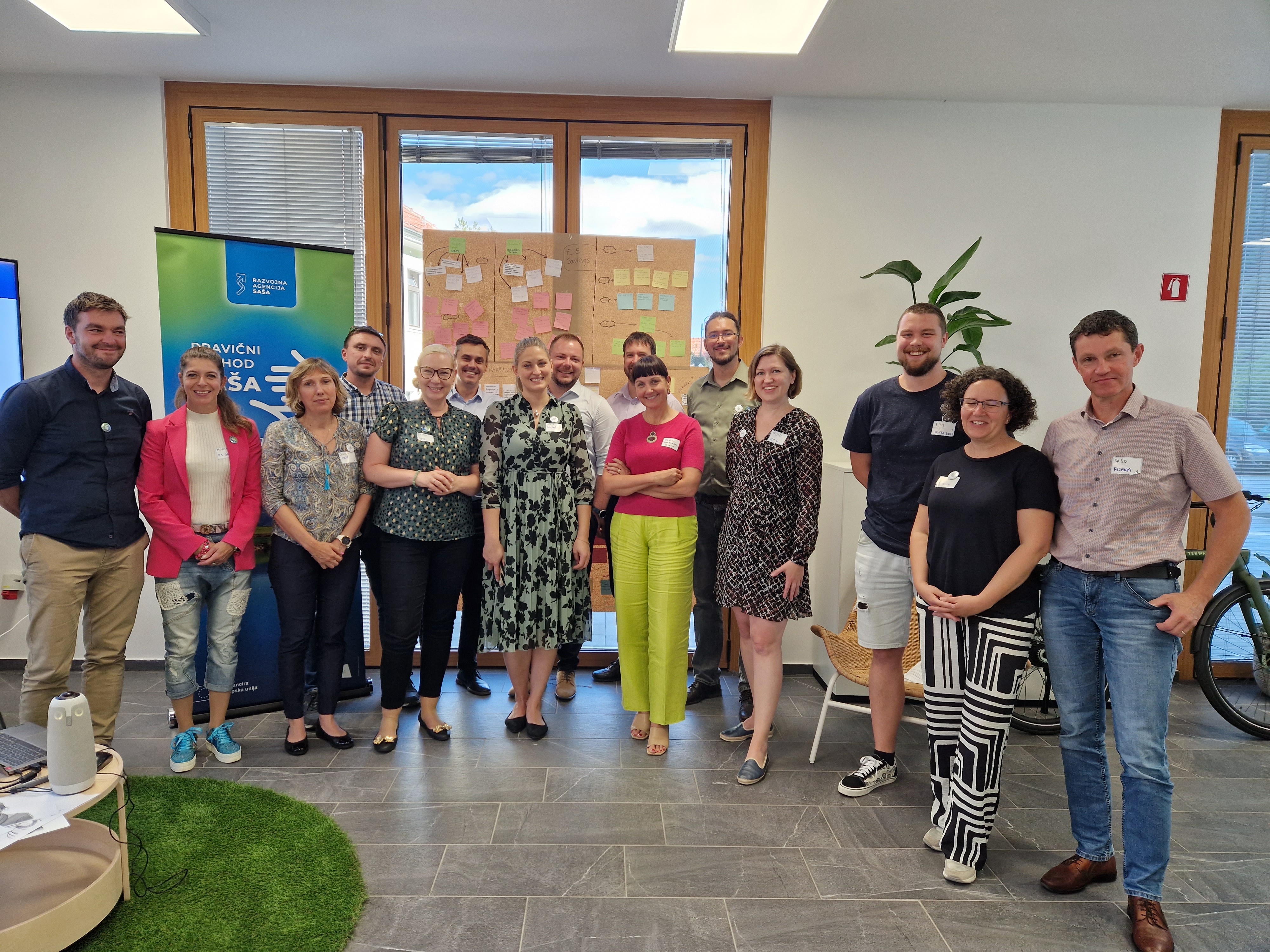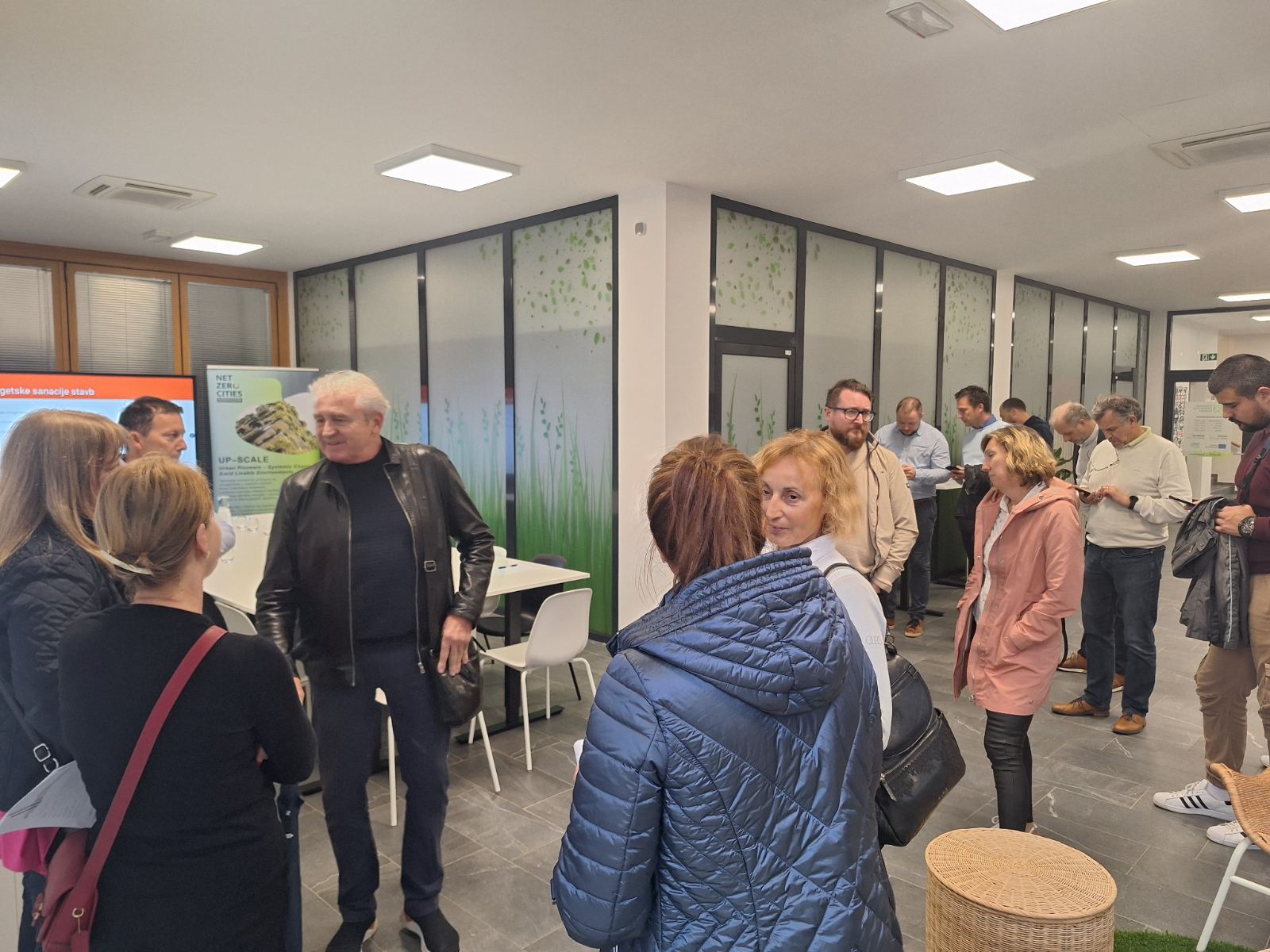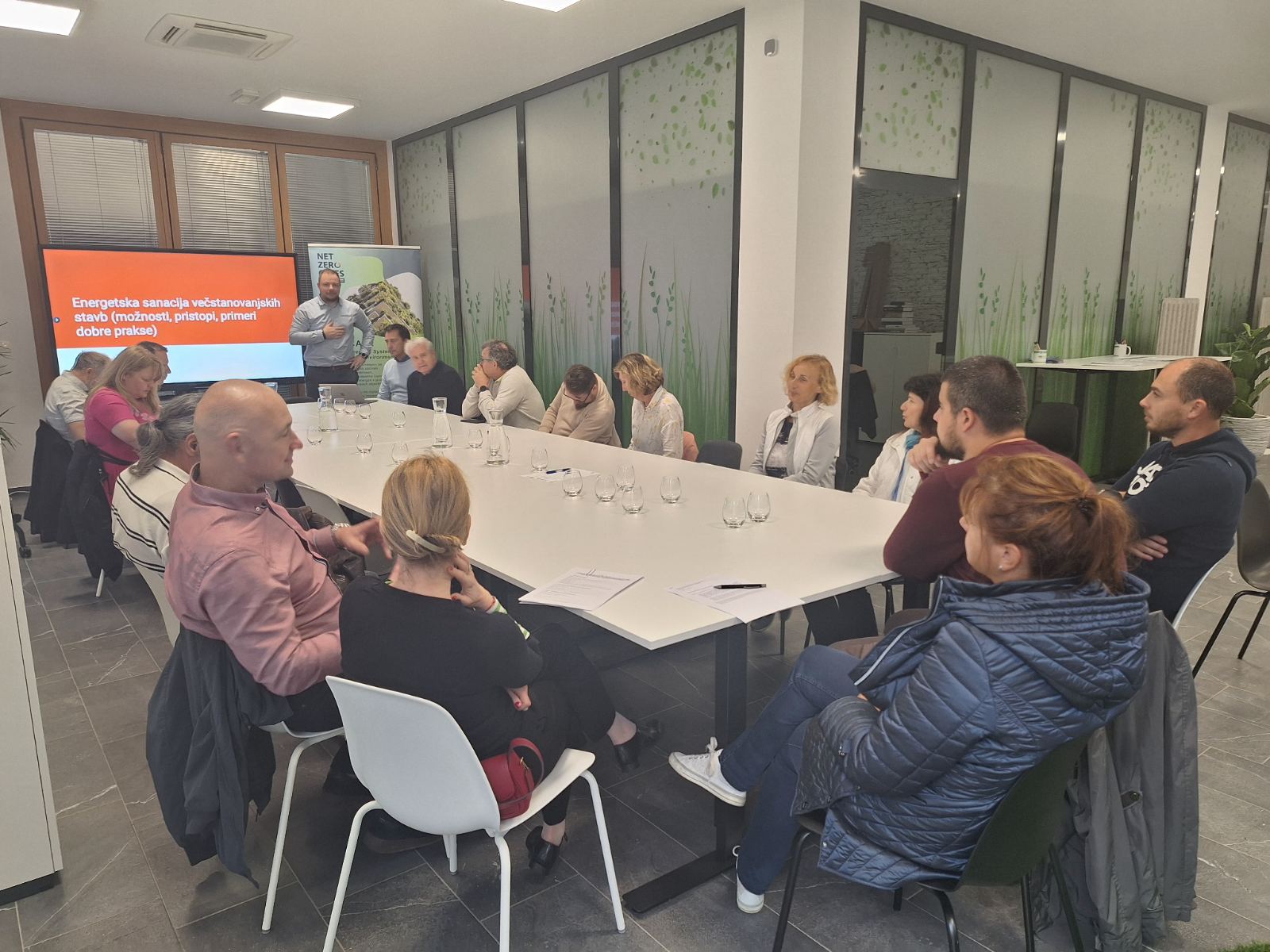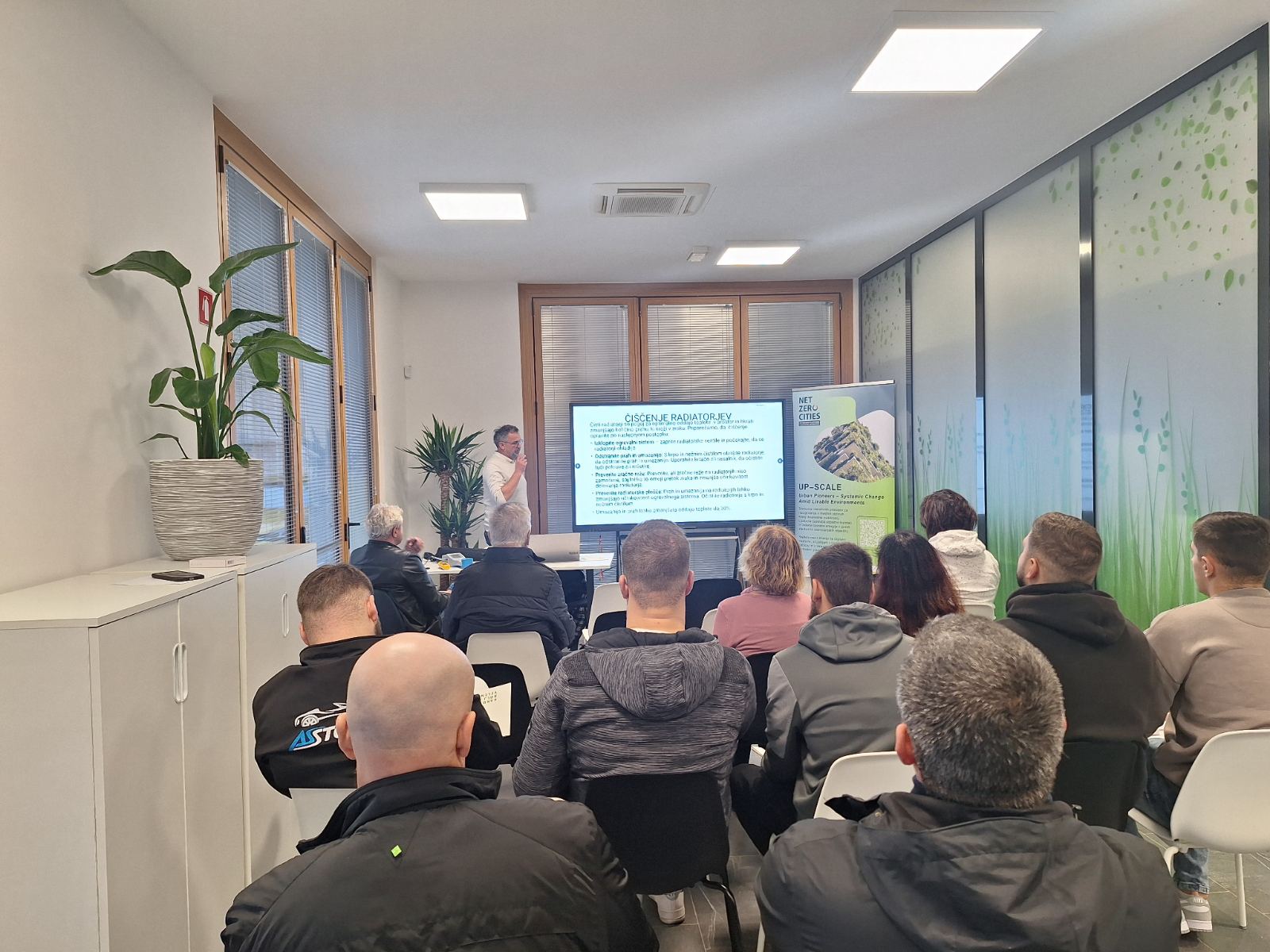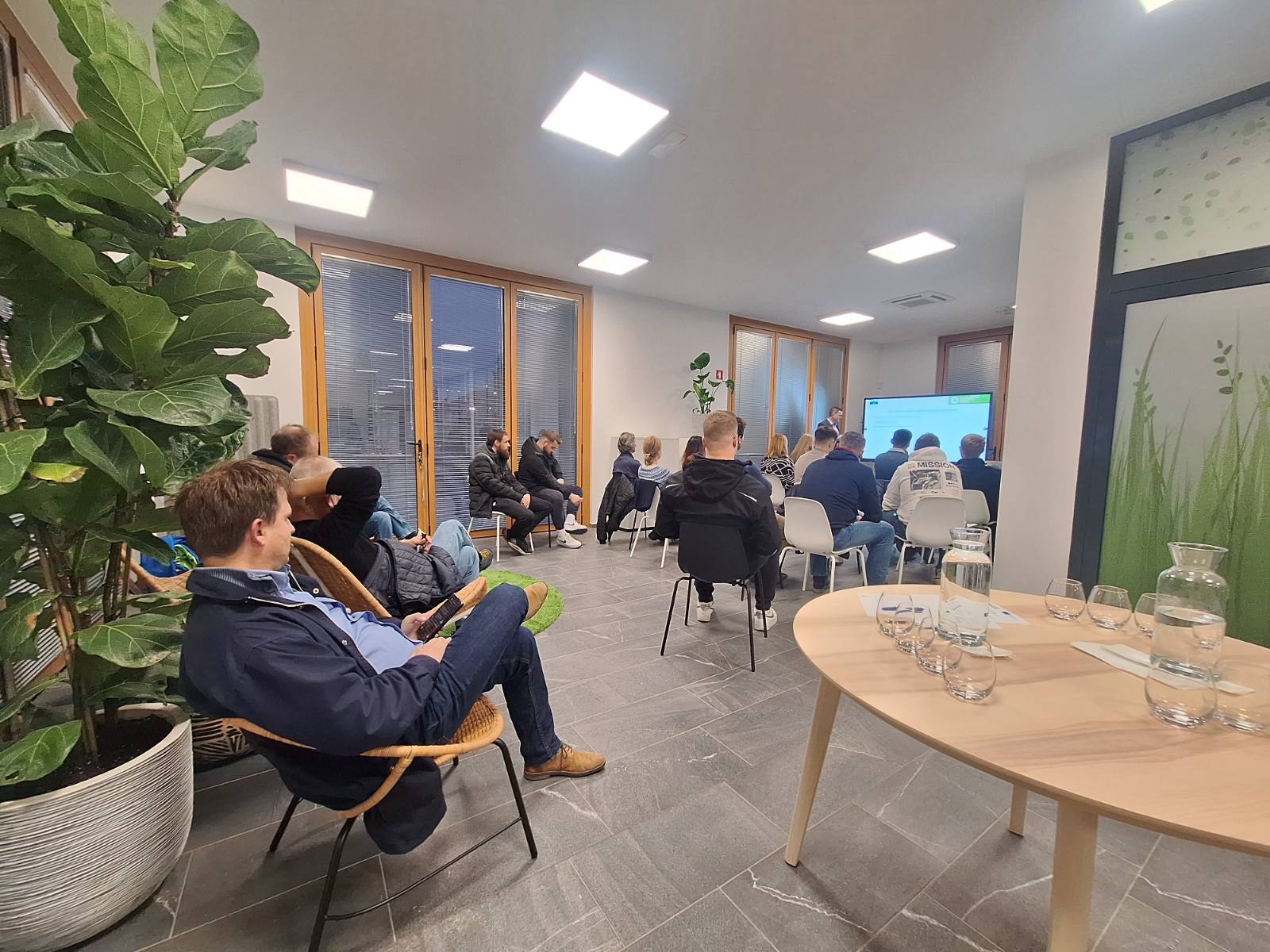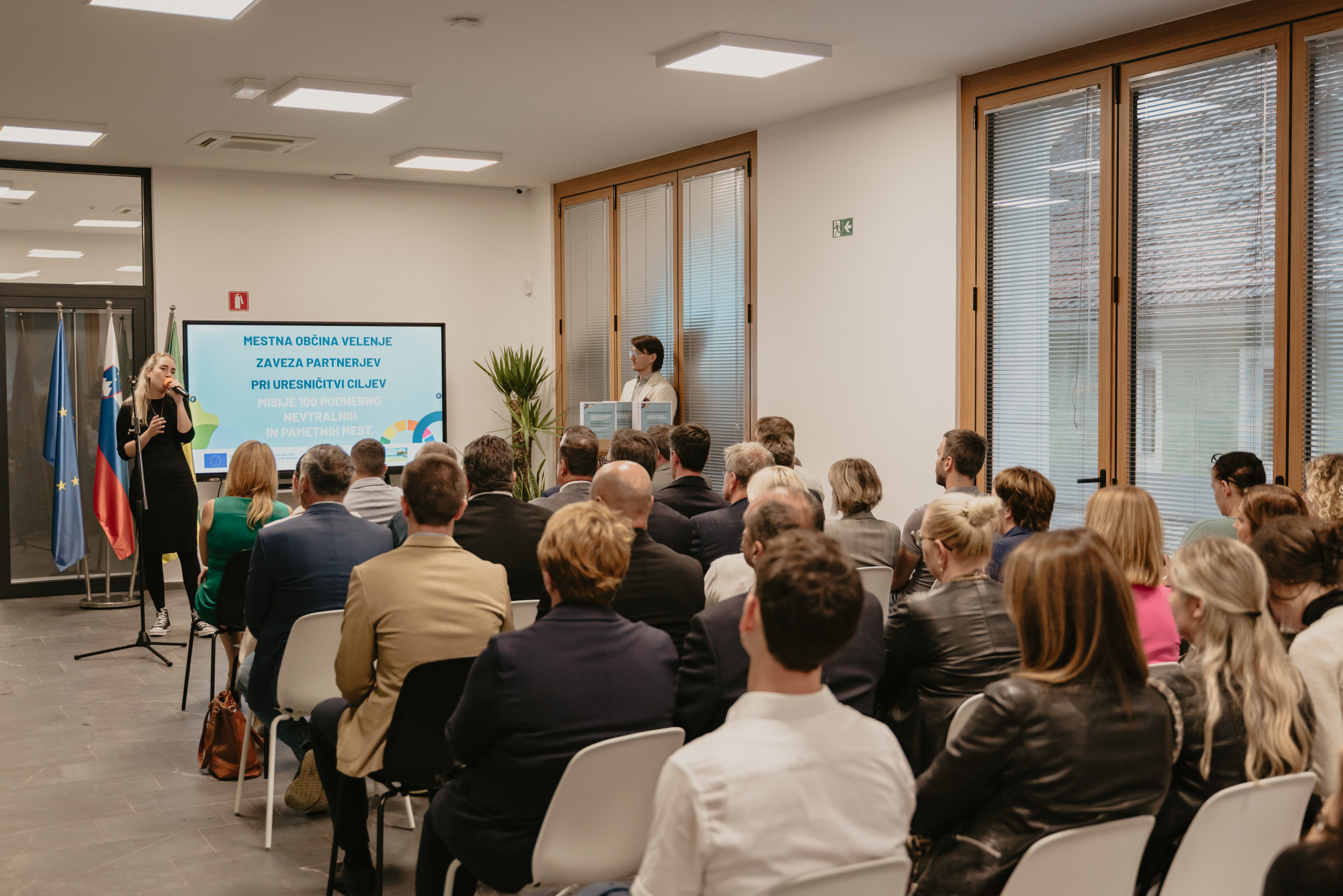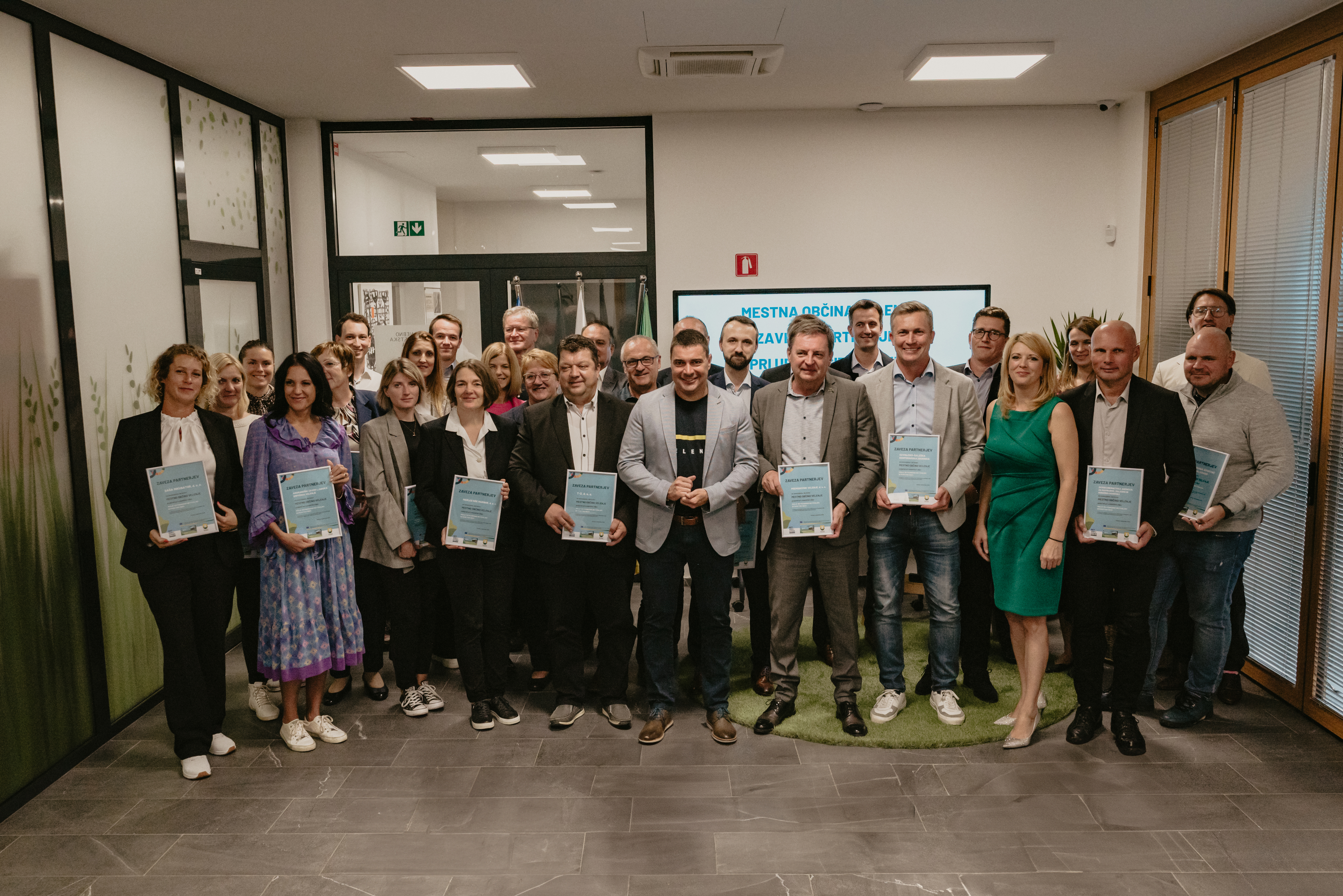Reconnecting with nature
PEP
Climate and Energy Office
The Climate Energy Office is dedicated to promoting and educating citizens in the areas of energy consumption, mobility, waste and the green economy. Within the office, we offer expert advice in the areas of reducing energy consumption, energy renovation of buildings and the use of renewable energy sources. We organize workshops, lectures and events to raise awareness and educate the public.
Slovenia
Regional
Savinjsko-Šaleška Region
It addresses urban-rural linkages
It refers to a physical transformation of the built environment (hard investment)
Yes
2024-07-04
Yes
Horizon2020 / Horizon Europe
No
Yes
No
Yes
As a representative of an organisation
The Office for Climate and Energy embodies these principles and focuses on empowering citizens with the tools and knowledge to reduce their impact on the environment and create a more sustainable future. The Office serves as a hub for education and advice on key areas such as energy consumption, mobility, waste management and the green economy. It directly supports individuals and businesses in making environmentally conscious decisions by providing expert advice on energy efficiency, building renovation and the use of renewable energy sources. In addition to its core services, it also operates the advisory network Eko Sklad and Borze, where independent experts provide free advice on energy investments and support programmes for renewable energy sources and energy efficiency. The aim of these services is to reduce entry barriers for green initiatives by providing accessible expert advice and assistance in securing financing for sustainable projects. In cooperation with local partners such as Komunalno podjetje Velenje and the Energy Agency, it increases the accessibility of expert advice on energy audits and renovation measures, as well as information on financial sources for energy-efficient improvements. Through these partnerships, the office supports local citizens in managing the energy transformation process and ensuring effective energy reduction. In addition, the Office for Climate and Energy actively informs the public about the modernization of district heating systems, demonstrating its commitment to promoting the long-term resilience of communities through sustainable energy solutions. By launching calls for subsidized heat reduction measures, the office continues to guide citizens towards effective changes that benefit both the environment and their well-being. The office, located in the Čuk Creative Center in Velenje, plays a key role in shaping a sustainable, inclusive and more resilient community for the future.
Sustainability
Energy Efficiency
Renewable Energy
Community Engagement
Education
The Office for Climate and Energy focuses on achieving sustainability goals with practical solutions to reduce energy consumption, promote the use of renewable energy sources and educate citizens about environmentally friendly practices. The main objective of the project is to help residents reduce energy consumption through professional advice, energy audits and advice on the energy renovation of buildings. This encourages the adoption of energy-efficient practices and reduces the carbon footprint.
In addition, the project emphasizes the promotion of renewable energy sources. By cooperating with the Ensvet network and the Borzen Junction, where independent experts provide free advice, it helps residents secure funds for green investments. This increases the accessibility and feasibility of sustainable solutions in the local community.
The project as a whole represents an exemplary model of a sustainable approach to energy transformation, combining professional advice, education, financial support and cooperation with local partners. It creates conditions for a long-term improvement in the quality of life of residents while achieving sustainable goals for the future.
In addition, the project emphasizes the promotion of renewable energy sources. By cooperating with the Ensvet network and the Borzen Junction, where independent experts provide free advice, it helps residents secure funds for green investments. This increases the accessibility and feasibility of sustainable solutions in the local community.
The project as a whole represents an exemplary model of a sustainable approach to energy transformation, combining professional advice, education, financial support and cooperation with local partners. It creates conditions for a long-term improvement in the quality of life of residents while achieving sustainable goals for the future.
The Climate and Energy Office in Velenje integrates aesthetics and quality of experience as fundamental components of its mission, aligning with the values of the New European Bauhaus initiative. Its focus on sustainable development complements a commitment to creating an environment that is not only environmentally responsible, but also culturally rich and visually appealing. The project promotes a positive user experience through thoughtful design, community engagement, and enhancement of local culture, ensuring that sustainability is not just a practical goal, but also an enjoyable and inspiring journey for all involved.
One of the key ways the project fulfills these goals is through the design of the Climate and Energy Office itself, located within the Čuk Creative Center. This space serves as a hub for environmental education and a cultural hub, where aesthetics play a key role in creating an inviting atmosphere. The office’s design incorporates elements that foster a sense of connection with nature and the environment, and reinforces the values of sustainability. The thoughtful use of materials, colors, and lighting creates an atmosphere conducive to learning, collaboration, and creativity, enhancing the overall experience for visitors.
In this context, the project serves as an exemplary model, demonstrating how sustainability and aesthetics can go hand in hand. By blending functional, environmentally responsible design with cultural enrichment and aesthetic appeal, it demonstrates that sustainable practices can contribute to the enhancement of the human experience, both in terms of practical benefits and emotional satisfaction. Through its design and cultural initiatives, the project creates a space where sustainability becomes not just a goal, but a shared experience that brings people together to imagine a better and more beautiful future.
One of the key ways the project fulfills these goals is through the design of the Climate and Energy Office itself, located within the Čuk Creative Center. This space serves as a hub for environmental education and a cultural hub, where aesthetics play a key role in creating an inviting atmosphere. The office’s design incorporates elements that foster a sense of connection with nature and the environment, and reinforces the values of sustainability. The thoughtful use of materials, colors, and lighting creates an atmosphere conducive to learning, collaboration, and creativity, enhancing the overall experience for visitors.
In this context, the project serves as an exemplary model, demonstrating how sustainability and aesthetics can go hand in hand. By blending functional, environmentally responsible design with cultural enrichment and aesthetic appeal, it demonstrates that sustainable practices can contribute to the enhancement of the human experience, both in terms of practical benefits and emotional satisfaction. Through its design and cultural initiatives, the project creates a space where sustainability becomes not just a goal, but a shared experience that brings people together to imagine a better and more beautiful future.
The Velenje Climate and Energy Office is designed with a strong focus on inclusion, ensuring that sustainable practices, environmental education and energy solutions are accessible and beneficial to all community members, regardless of their background, financial situation or abilities. The project aims to create an inclusive approach to sustainability by making energy-efficient and renewable energy solutions accessible, affordable and adaptable to a wide range of people.
One of the key objectives of the project is to ensure equal access to expert advice and support for investments in energy efficiency and renewable energy sources. With free advice through the Ensvet advisory network and the Borzen Contact Point, the project ensures that all residents, regardless of income, can receive expert advice on how to reduce energy consumption, improve energy efficiency and take advantage of financial incentives for sustainable investments. This removes financial barriers and promotes fairness in the transition to a greener and more sustainable future.
The project also prioritizes affordability by enabling access to financial support for as many people as possible. By offering grants for energy efficiency and renovation measures, it enables individuals and businesses, especially those with limited financial resources, to engage in energy-saving practices that they would otherwise not be able to afford. This approach helps ensure that the benefits of sustainability reach all sectors of society, regardless of economic status. Overall, the project illustrates how sustainability can be achieved through inclusive practices that ensure that no one is left behind in the transition to a greener future. By prioritizing accessibility, affordability, and inclusive decision-making, it serves as a model for creating a more just and sustainable society.
One of the key objectives of the project is to ensure equal access to expert advice and support for investments in energy efficiency and renewable energy sources. With free advice through the Ensvet advisory network and the Borzen Contact Point, the project ensures that all residents, regardless of income, can receive expert advice on how to reduce energy consumption, improve energy efficiency and take advantage of financial incentives for sustainable investments. This removes financial barriers and promotes fairness in the transition to a greener and more sustainable future.
The project also prioritizes affordability by enabling access to financial support for as many people as possible. By offering grants for energy efficiency and renovation measures, it enables individuals and businesses, especially those with limited financial resources, to engage in energy-saving practices that they would otherwise not be able to afford. This approach helps ensure that the benefits of sustainability reach all sectors of society, regardless of economic status. Overall, the project illustrates how sustainability can be achieved through inclusive practices that ensure that no one is left behind in the transition to a greener future. By prioritizing accessibility, affordability, and inclusive decision-making, it serves as a model for creating a more just and sustainable society.
Citizens and civil society played a key role in the Velenje Climate and Energy Office project, as they were deeply involved in the planning, implementation and ongoing activities. The project emphasizes a participatory approach, where citizens are not just passive recipients of services, but actively contribute to the transformation to a more sustainable future. This participation has had a significant impact on the success and relevance of the project, as it has ensured that it addresses the real needs of the community and fosters a sense of ownership and shared responsibility.
One of the main ways to involve citizens is through the initiatives of the Education and Awareness Office. We regularly organize workshops, lectures and events to raise awareness about energy efficiency, waste reduction, renewable energy sources and sustainable living practices. These events encourage active participation of residents, allowing them to directly interact with experts, ask questions and share their own experiences and ideas. This fosters a sense of community ownership and enables citizens to become ambassadors of sustainability in their neighborhoods.
One of the main ways to involve citizens is through the initiatives of the Education and Awareness Office. We regularly organize workshops, lectures and events to raise awareness about energy efficiency, waste reduction, renewable energy sources and sustainable living practices. These events encourage active participation of residents, allowing them to directly interact with experts, ask questions and share their own experiences and ideas. This fosters a sense of community ownership and enables citizens to become ambassadors of sustainability in their neighborhoods.
The Velenje Climate and Energy Office involves a wide range of stakeholders at local, regional, national and European levels, each of whom played a key role in ensuring the project’s success and alignment with broader sustainability goals.
Local level: Komunalno podjetje Velenje is a key partner that helped ensure that the project’s goals were deeply rooted in the needs of the local community. The municipality provided logistical and administrative support and helped integrate the project into local policies and activities.
Regional level: KSSENA, as the regional energy agency, played a central role in the regional outreach and implementation of the project. Its expertise in energy efficiency, energy audits and renewable energy solutions enabled the agency to offer tailored guidance to residents on how to reduce energy consumption and improve energy efficiency. In addition, the regional development agency CPP-RA SAŠA supported the project by ensuring alignment with regional development goals and sustainability plans, promoting cooperation and resource sharing between different regional stakeholders, and organizing lectures and workshops.
National level: The Ministry of Environment and Spatial Planning provided key support. MOPE helped align the project with national climate and energy policies, ensuring that national sustainability goals were met.
European level: At the European level, the project was designed in line with broader EU sustainability frameworks, including the European Green Deal and the New European Bauhaus initiative. These frameworks focus on promoting environmental sustainability, inclusion and aesthetic value in the design of cities and communities. By aligning the project with European goals, it ensured that the project contributed to regional and continental sustainability efforts, while benefiting from EU funds, knowledge exchange and best practices.
Local level: Komunalno podjetje Velenje is a key partner that helped ensure that the project’s goals were deeply rooted in the needs of the local community. The municipality provided logistical and administrative support and helped integrate the project into local policies and activities.
Regional level: KSSENA, as the regional energy agency, played a central role in the regional outreach and implementation of the project. Its expertise in energy efficiency, energy audits and renewable energy solutions enabled the agency to offer tailored guidance to residents on how to reduce energy consumption and improve energy efficiency. In addition, the regional development agency CPP-RA SAŠA supported the project by ensuring alignment with regional development goals and sustainability plans, promoting cooperation and resource sharing between different regional stakeholders, and organizing lectures and workshops.
National level: The Ministry of Environment and Spatial Planning provided key support. MOPE helped align the project with national climate and energy policies, ensuring that national sustainability goals were met.
European level: At the European level, the project was designed in line with broader EU sustainability frameworks, including the European Green Deal and the New European Bauhaus initiative. These frameworks focus on promoting environmental sustainability, inclusion and aesthetic value in the design of cities and communities. By aligning the project with European goals, it ensured that the project contributed to regional and continental sustainability efforts, while benefiting from EU funds, knowledge exchange and best practices.
The design and implementation of the Velenje Climate and Energy Office project reflected a multidisciplinary approach, combining expertise in energy efficiency, urban planning, environmental science, economics and community development. Energy experts, including those from KSSENA, provided technical expertise on energy audits, building renovations and renewable energy solutions. Urban planners contributed to the integration of energy efficiency measures into local infrastructure, while environmentalists ensured the project was aligned with broader sustainability goals.
Economists helped design financial support mechanisms and subsidy programs that ensure energy renovations are affordable for residents. Community development experts focused on engaging citizens through education, awareness-raising and participatory processes, making sustainability accessible and inclusive for all.
These disciplines worked closely together in joint planning and implementation, with regular communication between experts to align technical solutions with community needs and financial realities. The added value of this interdisciplinary approach was that it ensured that the project was not only technically sound, but also socially inclusive and financially sustainable, increasing its long-term impact and effectiveness.
Economists helped design financial support mechanisms and subsidy programs that ensure energy renovations are affordable for residents. Community development experts focused on engaging citizens through education, awareness-raising and participatory processes, making sustainability accessible and inclusive for all.
These disciplines worked closely together in joint planning and implementation, with regular communication between experts to align technical solutions with community needs and financial realities. The added value of this interdisciplinary approach was that it ensured that the project was not only technically sound, but also socially inclusive and financially sustainable, increasing its long-term impact and effectiveness.
The innovative character of the Climate and Energy Office project lies in its integrated, community-driven approach to sustainability. Unlike mainstream actions, which often focus solely on technical solutions, this project combines energy efficiency with active citizen engagement, education, and inclusive financial support. By offering free consultations, subsidies, and personalized advice through local and regional networks, it empowers residents to take direct action. Additionally, its collaboration across multiple levels of governance (local, regional, national, and European) ensures that sustainability measures are both effective and accessible, creating a holistic model that goes beyond typical top-down approaches.
The methodology of the Climate and Energy Office project in Velenje combines technical expertise with community-driven engagement. It focuses on providing personalized, free consultations and energy audits to help residents reduce energy consumption and adopt renewable energy solutions. The project engages citizens through educational workshops and events, empowering them to take action on sustainability. Collaboration between local, regional, national, and European stakeholders ensures alignment with broader sustainability policies, while tailored advice and financial support make energy efficiency accessible to all, ensuring that solutions are practical, affordable, and widely applicable.
The Climate and Energy Office project’s methodology, particularly its combination of personalized advisory services, community engagement, and collaboration across multiple governance levels, is highly replicable. The model of providing free consultations and energy audits, alongside financial support for energy efficiency measures, can be transferred to other regions. The educational workshops and events designed to raise awareness about sustainability are adaptable to different contexts, while the partnerships between local, regional, and national stakeholders offer a scalable approach for fostering collaboration and ensuring broad community participation. This model could be applied in various settings to promote sustainable energy practices and empower local communities.
The Climate and Energy Office project addresses global challenges such as climate change and the need for a just transition by providing local solutions that promote energy efficiency and the adoption of renewable energy. By helping residents reduce energy consumption and supporting energy renovations, the project contributes to reducing carbon emissions at the local level. It also ensures that the transition to a sustainable energy future is inclusive, offering financial support and personalized guidance to all citizens, particularly those with limited resources. This approach fosters a just transition, ensuring no one is left behind in the shift to a greener, more sustainable society.
The Climate and Energy Office in Velenje has achieved significant results in promoting sustainability and energy efficiency while promoting inclusiveness. The project directly benefited local residents by providing free advice, energy audits and access to financial support for energy-efficient renovations and renewable energy solutions. As a result, many citizens are reducing their energy consumption, adopting greener energy practices and improving the energy efficiency of their homes, contributing to reducing carbon emissions.
Indirectly, the project has created a ripple effect in the community by raising awareness of sustainable living and promoting the widespread adoption of energy-saving measures. Educational workshops and public events have led to increased community participation, empowering residents to take responsibility for their energy consumption and environmental impact.
The project’s collaboration with local, regional and national stakeholders has strengthened the local energy ecosystem and ensured that its benefits are shared across different levels of governance, increasing its long-term impact. Furthermore, by providing access to financial support, the project made sustainable measures more affordable, especially for lower-income households, ensuring a just transition to a greener future. Overall, the project not only contributed to achieving national climate goals, but also served as a model for other communities, demonstrating the importance of a comprehensive and inclusive approach to sustainability.
Indirectly, the project has created a ripple effect in the community by raising awareness of sustainable living and promoting the widespread adoption of energy-saving measures. Educational workshops and public events have led to increased community participation, empowering residents to take responsibility for their energy consumption and environmental impact.
The project’s collaboration with local, regional and national stakeholders has strengthened the local energy ecosystem and ensured that its benefits are shared across different levels of governance, increasing its long-term impact. Furthermore, by providing access to financial support, the project made sustainable measures more affordable, especially for lower-income households, ensuring a just transition to a greener future. Overall, the project not only contributed to achieving national climate goals, but also served as a model for other communities, demonstrating the importance of a comprehensive and inclusive approach to sustainability.

